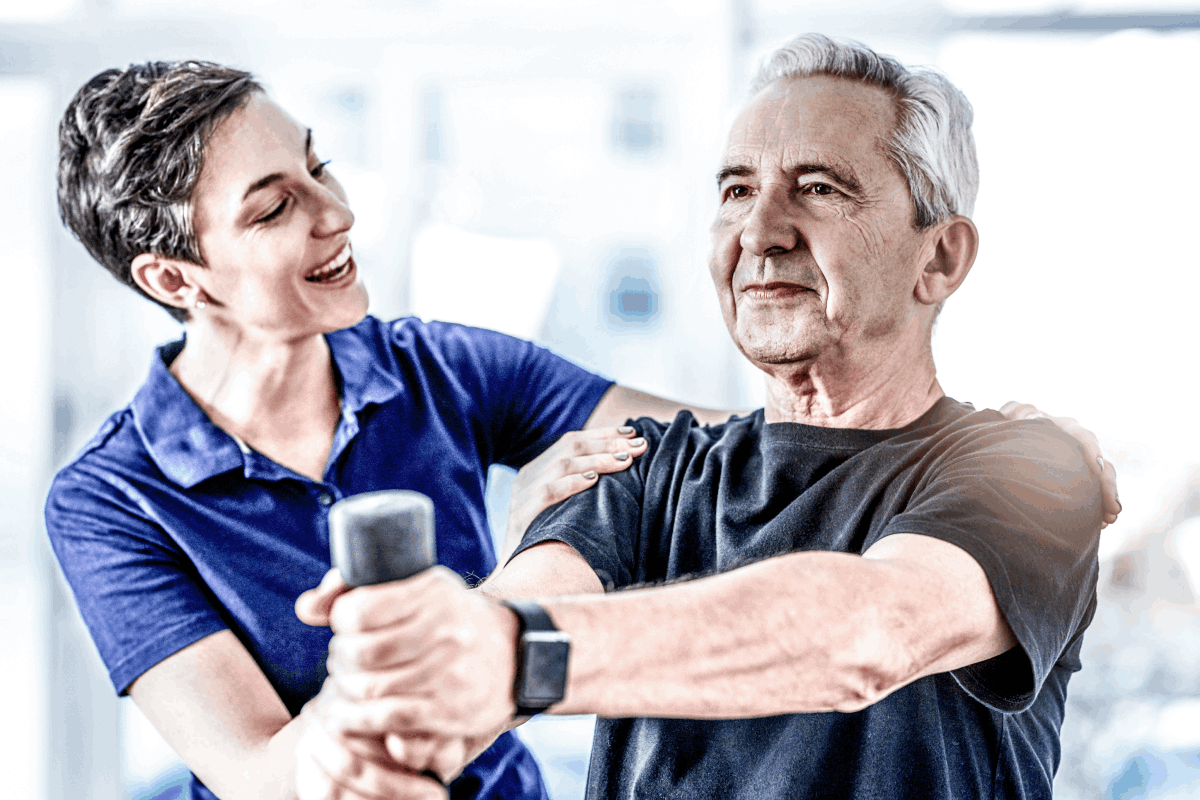As recently as a few decades ago, there were few good options for treating heart health issues like aortic valve disease. These days, innovative surgical procedures like TAVR greatly increase the odds of successfully treating these heart problems. Another key to successful treatment is completing cardiac rehab after surgery.
In many cases, you might consider a surgical procedure to be the culmination of treatment for a medical condition. While a surgical procedure does correct a defect or problem, that is only the beginning of the recovery process.
Recovering fully after a cardiovascular surgery—or following a heart health emergency like a heart attack—requires careful attention and adjustments to lifestyle habits. Cardiac rehab can help you make necessary changes—and help you stick to them.
What is cardiovascular rehab?
Cardiovascular rehabilitation, more commonly called cardiac rehab, is just what it sounds like. It’s a type of rehabilitation designed for your heart.
When you recover from certain injuries or undergo a surgical procedure like a knee replacement, physical rehabilitation is part of your journey back to optimal health. That’s also true for cardiac rehab.
When your heart has been under stress, due to either a heart health issue that was corrected surgically or a serious cardiac event, it needs rehabilitation to safely get back to full function. Cardiac rehab is typically a multiweek program designed to equip patients with the tools and practices they need to fully heal and protect their hearts in the future.
Sessions will include carefully monitored exercise that gradually progresses over time, along with educational sessions and resources related to nutrition, stress reduction and smoking cessation.
How does cardiac rehab benefit your heart?
While you can’t go back in time to prevent damage to your heart, you can take steps now to protect your heart and prevent future issues. That’s essentially what cardiac rehab does.
Cardiovascular rehab benefits a wide range of people, including those who have had a heart attack, who have stable angina, who have had angioplasty with or without a stent placement, who have heart failure, or who have undergone cardiovascular surgery such as a coronary artery bypass graft or TAVR. Those who complete the cardiac rehab program typically experience significantly improved heart health outcomes.
The numbers are pretty amazing. Studies have shown that completing cardiac rehabilitation decreases the risk of dying in the five-year period following a heart bypass or a heart attack by around 35%.
Another, more recent study adds further evidence that cardiac rehab is effective. Adults with coronary artery disease who attended five or more cardiac rehab sessions had a 42.7% reduced risk for hospital readmission or death.
While there is ample evidence that cardiovascular rehabilitation helps to protect the heart, many people choose not to participate. If cardiac rehab is recommended to you, there are many reasons why you should become a part of the group that does participate.
By participating in cardiac rehab sessions, you not only will help prevent future heart health issues, but you’ll also benefit from reduced stress, plus less shortness of breath, improved mood, and increased energy and strength. What’s not to love about all of those benefits?
Learn more
Have you recently undergone cardiovascular surgery or had a heart health emergency? Your next steps toward better health might begin with cardiovascular rehab. Call 770-219-8290 or click here to learn more.
Mitchell Davis, MD, is medical director of the cardiovascular rehabilitation program at Georgia Heart Institute.



